 Petzlover
Petzlover Atlas Terrier is originated from United States but Shetland Sheepdog is originated from United Kingdom. Atlas Terrier may grow 13 cm / 5 inches shorter than Shetland Sheepdog. Atlas Terrier may weigh 6 kg / 13 pounds lesser than Shetland Sheepdog. Atlas Terrier may live 3 years more than Shetland Sheepdog. Both Atlas Terrier and Shetland Sheepdog has almost same litter size. Both Atlas Terrier and Shetland Sheepdog requires Moderate Maintenance.
Atlas Terrier is originated from United States but Shetland Sheepdog is originated from United Kingdom. Atlas Terrier may grow 13 cm / 5 inches shorter than Shetland Sheepdog. Atlas Terrier may weigh 6 kg / 13 pounds lesser than Shetland Sheepdog. Atlas Terrier may live 3 years more than Shetland Sheepdog. Both Atlas Terrier and Shetland Sheepdog has almost same litter size. Both Atlas Terrier and Shetland Sheepdog requires Moderate Maintenance.
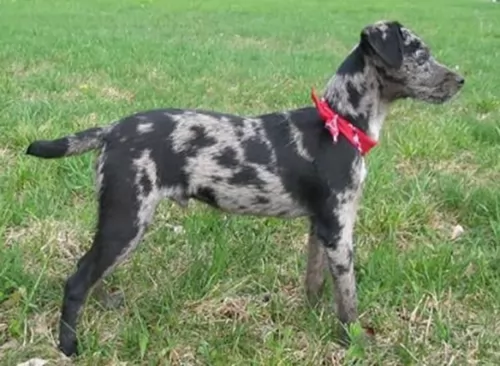 The Atlas Terrier is a rare dog. He was developed in the USA and is a blend of Jack Russell Terriers, Rat Terriers, Border Terriers and Patterdale Terriers. It was in 1990 that Lauren Wolfe developed a breed similar to the Jack Russell, but with a solid colour, and in fact she had two dogs that were solid red in colour. This was as a result of a cross between a Jack Russell Terrier and a Border Terrier.
The Atlas Terrier is a rare dog. He was developed in the USA and is a blend of Jack Russell Terriers, Rat Terriers, Border Terriers and Patterdale Terriers. It was in 1990 that Lauren Wolfe developed a breed similar to the Jack Russell, but with a solid colour, and in fact she had two dogs that were solid red in colour. This was as a result of a cross between a Jack Russell Terrier and a Border Terrier.
With the crossing of different terriers, the foundation for the Atlas Terrier was formed. Lauren Wolfe named the breed ‘Atlas Terrier’ because many terriers from various parts of the world were used to develop this specific breed. It was in 2001 that the Atlas Terrier Association was founded.
 The Shetland Sheepdog was crossed with working collies and brought to the islands. They were bred on the Shetland Islands, United Kingdom.
The Shetland Sheepdog was crossed with working collies and brought to the islands. They were bred on the Shetland Islands, United Kingdom.
These little dogs have always been particularly valuable to farmers who used them to herd their sheep.
During the early 20th century other crosses occurred an in 1909 and the little dog received recognition by the English Kennel Club. The first Sheltie to be registered by the American Kennel Club was in 1911.
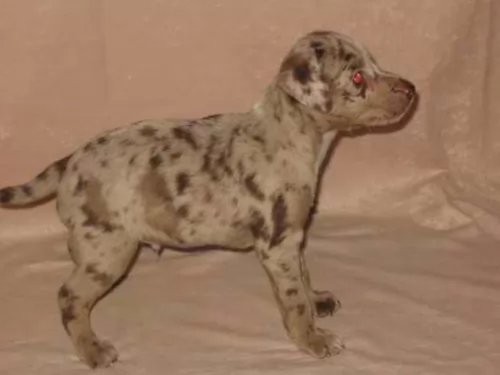 Atlas Terrier dogs are a small to medium sized dog but with a strong personality. With their two coat varieties – smooth and wire – and coming directly from the Jack Russell Terrier, this feisty dog suits those who want a low maintenance, fun breed who will join them on their walks or jogs. These dogs are brave and loyal and will double as a watch dog and family pet.The breed is accepted for registry and it is classified under the Terrier dog category.
Atlas Terrier dogs are a small to medium sized dog but with a strong personality. With their two coat varieties – smooth and wire – and coming directly from the Jack Russell Terrier, this feisty dog suits those who want a low maintenance, fun breed who will join them on their walks or jogs. These dogs are brave and loyal and will double as a watch dog and family pet.The breed is accepted for registry and it is classified under the Terrier dog category.
There are 3 sizes of Atlas Terrier – toy, miniature, and standard. The toy variety is 23 to 28 cm tall at the shoulder and weighs 2.7 to 5.4 kg. All three varieties are the same except for height and weight.
The coat of this dog is thick and may come in a variety of colours such as brindle or merle. The Atlas Terrier is also found in solid colours and sometimes you will find that they have white markings on the face, feet or chest. Most times the tail of the Atlas Terrier is docked, but if not, the tail curls over the back. The ears of the Atlas Terrier are V-shaped and they fold forward.
 The small Shetland Sheepdog stands at between 33 to 41cm and weighs roughly between 6 and 12kg for both males and females. The long double coat of this dog sheds consistently, he will need to be brushed regularly.
The small Shetland Sheepdog stands at between 33 to 41cm and weighs roughly between 6 and 12kg for both males and females. The long double coat of this dog sheds consistently, he will need to be brushed regularly.
The coat is golden, black or a steel grey color with white. The ears are erect and the tail long and feathery and the expression on this dogs face is sensitive, alert and gentle.
Shelties make wonderful pets for their human families and are great with children too. They’re protective, making good watchdogs. They are somewhat wary around strangers.
Smart and alert, you can train this little dog plenty of tricks because he is quick to learn. They’re such agile little dogs and are great athletes. It’s always a good idea to keep such a smart little dog busy so he doesn’t become bored.
He is able to adjust to life in the city or the countryside, so long as he is kept busy, otherwise he takes to a piercing kind of bark.
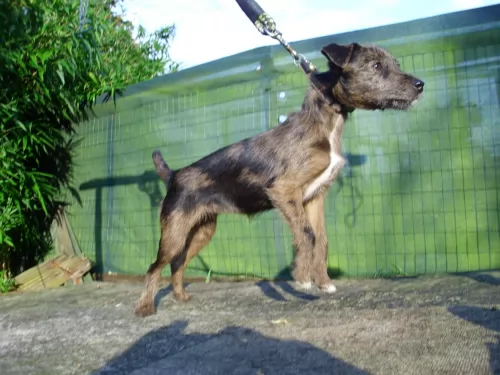 Atlas Terriers most certainly have a bit of the Jack Russell in them and these dogs are social, outgoing, mischievous and affectionate. They’re just like your regular naughty child and having one of them in your home will mean energy and lots of fun and games.
Atlas Terriers most certainly have a bit of the Jack Russell in them and these dogs are social, outgoing, mischievous and affectionate. They’re just like your regular naughty child and having one of them in your home will mean energy and lots of fun and games.
This is a highly social breed and he won’t like to be left alone every day. Just like a human child, he will need to be stimulated to ward off boredom and to prevent him from becoming destructive.
The Atlas Terrier just loves games and if you’re ready for a game, he will be more than ready to take part. He is intelligent and will therefore responds well to training and socialization. When properly socialized, Atlas Terriers get along well with children, and because they’re not an aggressive breed, if they’re properly trained and socialized they will get along with other pets too. Atlas Terriers make excellent pets, but he is a strong willed dog and will require an owner who is firm, but fair.
 You’re certainly not going to have one dull moment with the Shetland sheepdog – its such a lively, intelligent, entertaining, playful and also eager to please - that's your Sheltie.
You’re certainly not going to have one dull moment with the Shetland sheepdog – its such a lively, intelligent, entertaining, playful and also eager to please - that's your Sheltie.
They also have a gentle, quiet side. They love the company of their human family and are able to adapt to life in the city or countryside, so long as he gets lots of attention and exercise.
They’re highly strung dogs, and an excitable child can get them barking in a high pitched way which wont be good if you live close to your neighbors.
Shelties are essentially peaceful dogs who prefer a home where its quiet and orderly. If you give this dog what it needs, just like you would for any family member of yours, you’ll be blessed with an awesome pet and companion.
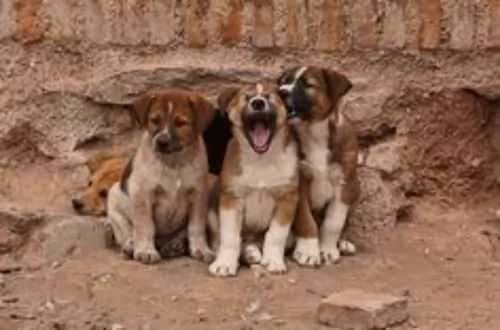 The selective breeding program of Atlas Terriers has meant that this is a robust, spunky breed free of any major health concerns. While they are a low maintenance breed with longevity on their side, you still have to be a responsible pet owner and see that your Atlas Terrier puppy gets all those must have injections.
The selective breeding program of Atlas Terriers has meant that this is a robust, spunky breed free of any major health concerns. While they are a low maintenance breed with longevity on their side, you still have to be a responsible pet owner and see that your Atlas Terrier puppy gets all those must have injections.
Tiny puppies are susceptible to infectious diseases and will have to be vaccinated against them from 8 weeks on and then also get an annual booster. The diseases to be vaccinated against include hepatitis, distemper, parvovirus, coronavirus, eptospirosis and parainfluenza. Vaccinations must be kept up to date and it is mandatory for your puppy to be vaccinated against rabies.
 Every dog, no matter how healthy, can succumb to any one of the many dog illnesses there are.Some of the dog illnesses to look out for include cancer, bloat, ear infections, dental problems, hypothyroidism, skin allergies and obesity among others.
Every dog, no matter how healthy, can succumb to any one of the many dog illnesses there are.Some of the dog illnesses to look out for include cancer, bloat, ear infections, dental problems, hypothyroidism, skin allergies and obesity among others.
This illness occurs when the dog’s body doesn’t maintain sufficient levels of thyroid hormones. Your pet will be sensitive to the cold, the thick hair will be thinning and there will be weight gain. It will be wise to have your dog checked out by your vet as this is an ailment which can be managed with medication.
This is an inherited condition that can lead to blindness in some dogs. It can occur in both eyes. It can be diagnosed by your vet but regrettably there is no treatment. Not spaying or neutering your dog will mean that if the have puppies the gene can be carried down to the puppies.
This is an inherited disorder that can cause skin lesions but also affect the muscles. Skin lesions can appear on the head and the front legs and there can be hair loss.
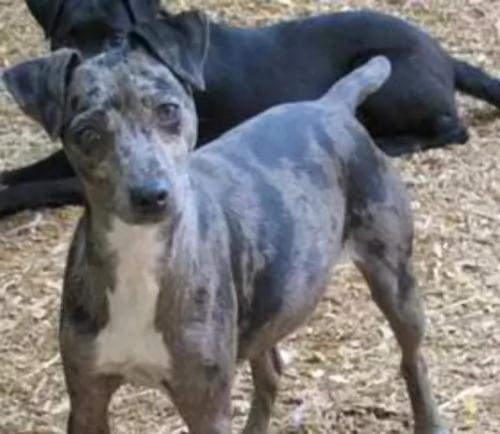 As a medium shedder, the Atlas Terrier will require some grooming. Grooming is easy and a brush twice a week with a rubber-bristled brush will remove those loose hairs and give his coat a sheen.
As a medium shedder, the Atlas Terrier will require some grooming. Grooming is easy and a brush twice a week with a rubber-bristled brush will remove those loose hairs and give his coat a sheen.
Always make sure you’re feeding your tiny puppy the right quantities of a food type. Always feed your puppy food which is appropriate to his age. Your 8 week old puppy will require 4 meals a day. A highly active breed such as the Atlas Terrier will require more protein for energy.
Speak to your veterinarian about the perfect diet for your puppy and about wet- or dry foods. There is the choice of feeding your puppy commercial dog food or your own home-prepared meals, but then you want to be sure that your puppy is getting the right balance of minerals and vitamins.
Once your Atlas Terrier is about a year of age, he can go onto one meal a day or a lighter meal in the morning and the evening. Remember to ensure that there is always clean, cool water available for your puppy.
 These little dogs have always been farm dogs and they will need a lot of exercise. Even so, with their small size, they can adapt to life in the city or the countryside, but will always need exercise.They love going for walks and playing games with the kids.
These little dogs have always been farm dogs and they will need a lot of exercise. Even so, with their small size, they can adapt to life in the city or the countryside, but will always need exercise.They love going for walks and playing games with the kids.
Your Sheltie will need brushing every day because the hair can so easily pick up leaves, twigs and burrs. In the warmer months some people prefer to trim the coat themselves or take the dog along to a professional groomer.
It is best to feed adult dogs two meals a day instead of one. One can make your dog want to gobble up his food too quickly and this can result in a life threatening condition known as bloat.
How much any adult dog eats will depend on his size, his age and his activity levels.The quality of dog food you buy also makes a huge difference – the better quality the food, the more satisfied your Sheltie will be.
Some of the best commercially manufactured dog foods are convenient and they can be good if you go with the best brands that have high levels of vitamins and minerals in them. Dry kibble can be made more enticing when you add some homemade food into it.
Boiled chicken, sweet potatoes, brown rice or pasta, carrots and spinach will do him the world of good. Chop it up and add small portions to the kibble about twice a week. His wagging tail and prancing antics will be all the thanks you need.
Some raw meat added in occasionally will also contribute to your pet’s heath. Make sure he is never without a constant supply of fresh, cool water.